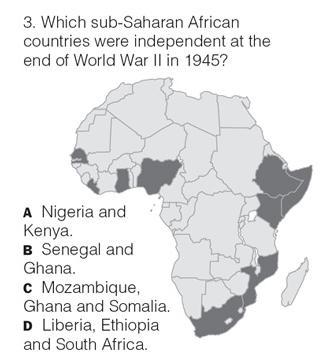 Since 1932 the Foreign Service examination has reigned supreme among all professional entrance exams as the most rigorous, thorough, and scrupulously fair ritual of its kind. Each year, roughly 20,000 applicants take the Foreign Service exam. Roughly 17,000 fail. The reward for passing? A grueling oral interview with Foreign Service officers. Acing the Foreign Service exam was necessary, but never sufficient, for those who aspired to this prestigious line of public service.
Since 1932 the Foreign Service examination has reigned supreme among all professional entrance exams as the most rigorous, thorough, and scrupulously fair ritual of its kind. Each year, roughly 20,000 applicants take the Foreign Service exam. Roughly 17,000 fail. The reward for passing? A grueling oral interview with Foreign Service officers. Acing the Foreign Service exam was necessary, but never sufficient, for those who aspired to this prestigious line of public service.Now the State Department stands poised to discard the Foreign Service exam. As reported in the Washington Post and the New York Times, the State Department is poised to discard its traditional exam in favor of "a new approach, a bit less quantifiable." As the Times describes the change in policy:
At the suggestion of McKinsey & Company, the management consultants, [State] plans to revamp the process to evaluate what it calls “the Total Candidate” . . . . The written exam will stay largely the same, although streamlined and given by computer, instead of bubble-sheet and bluebook. . . .
As applicants register for the exam, they will submit an online “structured résumé” describing their work experience, foreign residence, leadership experience and language abilities, among other things. Then, on the basis of the test results and résumé, combined in some undisclosed metric, a screening committee will decide who goes on to the oral assessment.
 And so the United States government bids farewell to a rite of passage in which Foreign Service "applicants are tested on their knowledge of such topics as democratic philosophy, international law, world history and geography, along with math and English skills." The Post recites the State Department's traditional warning that "the only way to prepare [was] to 'read widely.'"
And so the United States government bids farewell to a rite of passage in which Foreign Service "applicants are tested on their knowledge of such topics as democratic philosophy, international law, world history and geography, along with math and English skills." The Post recites the State Department's traditional warning that "the only way to prepare [was] to 'read widely.'"Why did McKinsey advise the abandonment of the traditional Foreign Service exam in favor of the "Total Candidate" approach? According to the Post, "McKinsey acknowledged that the current hiring process is a proven predictor of candidate success." Some, though by no means all, veteran Foreign Service officers worry that the turn to subjective evaluation of a “structured résumé” could, in the words of the Times, "open the door to political considerations, or applicants with family connections." A particularly bitter critic pans the "Total Candidate" as a rejection of success: "The State Department has been too successful."
Here at MoneyLaw, we like success. Just what is wrong with a test that assesses job applicants' mastery of these topics?
- English composition/rhetoric
- American history
- American studies (including cultural and social history)
- American political thought
- American political system
- American economic history
- Introduction to economics (micro- and macro-)
- World history
- World geography
- World religions
- International economics
- Introduction to statistics
- Introduction to management principles
- Intercultural communication
- Mass communication
- Psychology
 That list comes quite close to the types of knowledge that a proficient law professor should bring to the job.
That list comes quite close to the types of knowledge that a proficient law professor should bring to the job.Consider the Foreign Service exam question at left (extracted from a New York Times' graphic presenting six typical questions). How many law professors could simply locate Nigeria, Kenya, Senegal, Ghana, Mozambique, Somalia, Liberia, Ethiopia, and South Africa, let alone recall their political status as of 1945? A detractor might argue that knowledge of this sort is pertinent strictly to international law, but I demur. Even if we dismiss knowledge of sub-Saharan Africa, I don't think we can so readily dismiss the notion that broad knowledge of culture, history, language, and the basic tools of natural and social science is essential to success in legal academia.
Herewith a modest proposal for the State Department and McKinsey & Company. If State really does want to switch to the "Total Candidate" approach, legal academia can offer a new home for the traditional Foreign Service exam.